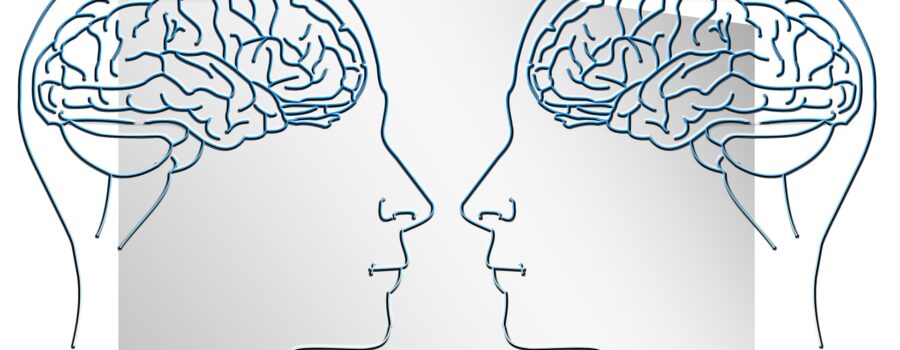I grew up in a traditional first-generation Mexican American household. My father immigrated from Mexico and my mother worked in the fields since she was a teenager. Both my parents have been hard workers with the highest work ethic I know. Their primary goals were to have a roof over our heads, feed us and have my siblings and I get an education. Since I was a young child, my mother said I would go to college because she did not go to school.
As my parents worked and navigated their own stressors, my parents’ demeanor is something that highly impacted me since I was a very young girl. My mother was dominant, critical, and had high expectations. My father was quiet, passive with occasional explosions. My brother who is 2 years older than I was took a lot of space in our house and I remember deciding to not create tension in the family. Looking back, I was a highly sensitive kid, an empath if you can call it that. I was affected by criticism, approval and quickly learned how to get praise. I excelled in academics, teachers praised me, and I thrived. School became my playground and area that I shinned, it also worked out because my parents also liked it. I would get money if I got straight A’s. This became a marker in my life, be a high achiever and you will get praise, yet I was highly sensitive to criticism, looked for approval through external means, and questioning my self-worth. This also led to perfectionistic traits because I did not accept anything less than perfect in school.
Flash forward to my adult life, I still found myself having these traits, high achiever and highly sensitive to criticism, people pleasing out of fear to speak my truth. I was scared to make mistakes and realized I did not need to keep achieving to feel loved. I still found myself hiding to avoid criticism at work and in m relationships. I had years of talk therapy, I knew the ins and outs of my psychological make up, yet my emotions did not match up to my intellectual mind. I knew I was loved but I did not feel it. I knew it was a positive to speak my truth, but I shied away. In 2015 my girlfriend was getting trained in EMDR and I was her practice client. This was when I was introduced to EMDR and my life shifted.
What is EMDR?
EMDR stands for Eye Movement Desensitization and Reprocessing. EMDR was started by psychologist Francine Shapiro in 1987. Since then, there is enough research to support the evidence-based approach in treating PTSD and many forms of trauma. When we have negative experiences from our childhood, our brain stores in a way that continues to affect us in our daily life. These can be called defense mechanisms or protective shields. We can be defensive, isolated, or withdraw to avoid confrontation. We clam up when we get anxious and stop performing out of fear of failure. When we take time to dissect how our responses developed, we find that it can be the way our brain stored events from our past. In essence, our negative responses to current triggers can be a result of how we stored information from our past. With EMDR, the purpose is not to forget or erase our past but to create a healthier way of understanding how our past and creating new beliefs about ourselves.
EMDR is a systematic approach, the clinician’s role is to help the patient get through these stages in a safe manner. In EMDR, the therapist facilitates bilateral stimulation, alternating left and right parts of our brain through eye movement, tapping, motion buzzers, and remotely through a computerized program. The purpose behind stimulating both parts of the brain is to enable both hemispheres of the brain to work together in accessing memories, thoughts, and beliefs from our past. Through this method, the therapist gains information, and in a naturally evolving session; information is retrieved, and emotions are felt that allow for healing.
Things to expect in an EMDR session:
-
-
- Assessment for Dissociation features – this is one measure to help the clinician understand the level of dissociation per patient. With Trauma, the brain and body disconnect, with the level of disconnection varying per individual.
- The goal is to first understand how our current thoughts and beliefs are connected to our past experiences. On some occasions, if we do not recall a memory or experience, our body will react, and this can be utilized in EMDR.
- We review the level of distress (how negative the memory feels) memories have and then determine which memory to work through first.
- Prior to starting any reprocessing (middle stage of EMDR), the clinician will help the patient create a safe place and enhance positive traits to make sure reprocessing is successful.
- Create new associations to memories and reduce the level of stress
- EMDR can be short-term for a specific target goal, on average 4- 6 sessions per target, however, depending on the patient, goals, and history of trauma, it can vary.
-
Talk Therapy vs EMDR Therapy
Talk Therapy Characteristics
Note: These can vary depending on type of therapy, individual, family and couples have different components.
-
- Sessions are conducted in a back and forth talking manner
- The therapist asks questions, gathers history, goals and comes up with treatment goals/expectations
- Both clinician and client determine the length of treatment and when to terminate counseling
- Depending on the theoretical orientation of the clinician, the therapist might be direct, allow the patient to direct the therapy session
- Homework sessions may be assigned
- Session durations generally range from 45-50 minutes.
EMDR Therapy Characteristics
Note: Sessions will vary as every client is different, but these parts can be expected
-
- Sessions are conducted in a back and forth talking manner.
- The therapist asks questions, gathers history, goals, and comes up with treatment goals/expectations.
- Clinician administers Dissociative scale and does assessment gathering for EMDR- treatment goals and links to history.
- In sessions, the client is in control of the session and they decide what direction to go, when to stop, and to proceed. The therapist follows the client’s lead with information and provides safety for the client to share as the session progresses.
- The therapist will help the patient create a safe and calm place as a grounding (Bilateral stimulation used).
- The therapist will assess if the patient needs assistance in talking about trauma and prepares for work (Bilateral stimulation used).
- The therapist and client determine the first target goal to work on and will focus on that target in the following sessions.
- In subsequent sessions, the target goal is the focus and the use of bilateral stimulation until the target is complete.
- Sessions in between can include talking about realizations, dreams, and any new learning in between sessions.
- Time is allotted at the end for talking about what occurred in the session for the client.
- Activities can be done to help the patient leave the session feeling calm before the next session (Bilateral stimulation used).
- Session durations generally range from 60-90 minutes.
Thinking about EMDR for your treatment?
There are many types of treatment for trauma. EMDR is one treatment approach, and it is not one shoe fits all. There are many variables that go into consideration when determining if a patient is a good candidate for EMDR. EMDR can treat issues like performance anxiety, past trauma including sexual abuse, physical abuse, emotional abuse, and complex trauma. EMDR can address present-day issues such as performance anxiety and procrastination. As it did for me, EMDR can address childhood trauma and heal past wounds. When we have the willingness to go deeper and look at memories from our past in a safe environment, we allow space for new connections and break free from how our past affects our present. In my experience, my triggers are not the same. I do not shut down as easily when my mother makes remarks, I can take criticism well, I can dialogue within my relationships and not take it personally. In my work environment, I do not shy away as I once did. I do not fear criticism and welcome conversations that will help me grow. With this work, I no longer carry the same baggage and I do not hold resentment towards my parents. I can see them and understand they were doing the best they could to provide for us, my parents did not know how to be attuned to my emotions and to this day love me the same with or without achievements.





Recent Comments